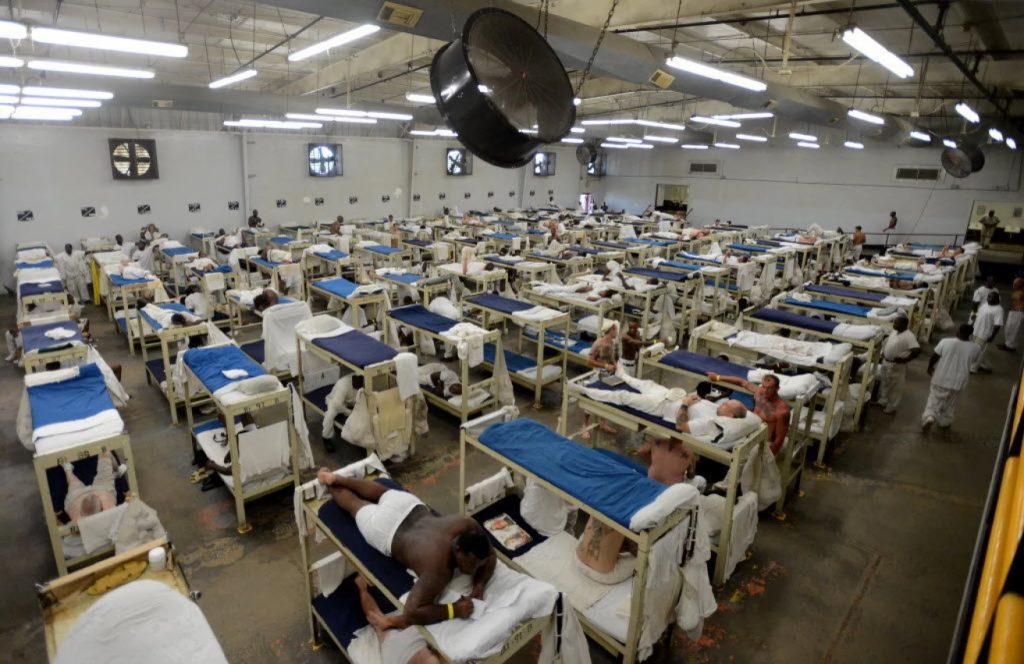Support prisoners in Alabama on strike against slavery

We send greetings and solidarity to our sisters and brothers in the Alabama prison struggle, their families, and their supporters and support networks outside the prisons. We are from the United Kingdom, Thailand, Peru, the United States and Canada, India, Ireland and friends in other countries.
Your demand as workers who get no wages strengthens the struggle against slavery everywhere, beginning with the United States where removing the ‘slavery exception’ for prisoners from state constitutions has just been passed overwhelmingly by voters in Alabama, Oregon, Tennessee and Vermont. No doubt your strike had a positive impact.
Your 15,000 strong strike against slavery, and horrendous inhumane conditions imposed by the State of Alabama, gives leadership and education to all of us around the world.
We remember the 2010 prisoner hunger strikes in Georgia and other US prisons against solitary confinement. This struggle, which won the release of thousands of people from solitary and from prison, was also momentous because it fomented an unprecedented unity between Black, Latino and white prisoners, including so called “gang members”. It led to the extraordinary agreement to end racial hostilities: where prisoners pledged that “we can no longer allow the California Department of Corrections and Rehabilitation to use us against each other for their benefit.”
In that spirit you have made no distinctions between prisoners, though we cannot help but note that approximately 60% of the prison population in Alabama are people of colour, twice the percentage in the general population. We know that Alabama has a long history of plantation slavery and racism, including under the governorship of George Wallace, labelled “the most dangerous racist in America today” by Martin Luther King. In the tradition of Wallace, the present governor Kay Ivey (who has a history of public racism, for example wearing ‘blackface’) now says your demands are “unreasonable”. On the contrary, your strike has alerted us and the world that it is the prison laws and policies of Alabama which are not only unreasonable, but brutal, cruel and inhumane.
Your struggle deserves the support of working people everywhere. Just as the destruction of slavery, starting with the Haitian Revolution, and spreading throughout the Caribbean and the Southern US, led to great advances for waged workers in the north, your struggle against slavery in prisons advances the struggle of both waged and unwaged workers.
Through your actions you have informed the world about the brutal exploitation of prison workers, paid 52 cents per hour, by rapacious corporations, which profit from the $2 billion in goods and $9 billion in prison services produced. This pattern is replicated in immigration detention where detainees are paid slave wages of $1/day. Through hunger and work strikes at North West Detention Centre in Tacoma Washington they won a court ruling that they must be paid the federal minimum wage, inspiring similar lawsuits in other states.
The Alabama prisoners’ movement has also forced the authorities to act, specifically the U.S. Federal Government which is suing the state for cruel and unusual punishment. But the delay before this case comes to court is unacceptable as prisoners in Alabama continue to be killed.
We understand that you have paused your strike to preserve the health and life of prisoners targeted for retaliation by the prison system. As you say in your statement, “Unlike the ADOC [Alabama Department of Corrections], we value life.”
Along with all your supporters, including your partners who founded Both Sides Of The Wall and who are doing such essential unwaged justice work alongside you, we will be building international support until slavery and inhumane conditions are ended in Alabama’s prisons and everywhere else.
Power to the movement of prisoners and their supporters on both sides of the wall!
Selma James, The Global Women’s Strike
Sara Callaway, Women of Colour / Global Women’s Strike (UK)
Margaret Prescod, Women of Color / Global Women’s Strike (US)
Eric Gjertsen, Payday men’s network
